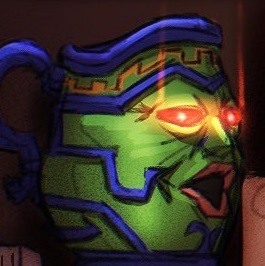Hello comrades, it’s time for our third discussion thread for The Will to Change, covering Chapters 6 (Work: What’s Love Got To Do With It?) and 7 (Feminist Manhood). Thanks to everyone who participated the last few weeks, I’m looking forward to hearing everyone’s thoughts again. And if you’re just joining the book club this week, welcome!
Chapter 6 discusses the role of work under patriarchy and how capitalism forces men and women alike to not only work long hours to survive, but to prioritize supporting themselves and their families financially over any sort of healing and growing. Chapter 7 delves into how men can apply feminist thought practically to support the well-being of themselves and the people around them.
If you haven’t read the book yet but would like to, its available free on the Internet Archive in text form, as well as an audiobook on Youtube with content warnings at the start of each chapter, courtesy of the Anarchist Audio Library, and as an audiobook on our very own TankieTube! (note: the YT version is missing the Preface but the Tankietube version has it)
As always let me know if you’d like to be added to the ping list!
Our next discussion will be on Chapters 8 (Popular Culture: Media Masculinity) and 9 (Healing Male Spirit), beginning on 12/25. That thread will likely stay up a little longer than usual as I’m sure many people will be busy around the end of the year and I want to give everyone the opportunity to share their thoughts.

Chapter 7 is finally talking about alternative/feminist masculinity that we have wanting throughout the whole book. It lays out some of the assumptions about masculinity and feminism in the earlier chapters. I loved these early quotes:
This really shows why an alternative masculinity is needed and why it is so difficult. The fear of the feminine and womanly is driving this cultural perspective that feminism hurts men when its not the case. Moreover, it shows the difficulty in finding an alternative masculinity since masculinity is defined as an opposite of women. If this is the case, it shows why men are terrified of feminism. If woman can be anything the opposite would mean that men can’t be anything. This is not what feminism says but can be a persuasion argument if you like about it. bell hooks lays out why this myth started which I think is amazing because it destroys the argument that all feminist hate all men. Moreover, it shows how intersectionality can solve this problem which I think bell books lays out amazing in the following quote:
This is more and more obvious as time goes on. The rich white woman who take up the mantle of patriarchy to dominate those below them. They were always powerful and want to keep this power and don’t want to rock the boat. They are happy being second best as long as there are people below them .
Her new model of positive masculinity is great if a little trans-exclusive which is understandable based on the age of the book. I think we can take the quote below and alter it as a new basis of alternative masculinity. See below (emphasis mine):
If remove the portion about genitals this can serve as as good definition. This is similar to what feminism has done for women. There is no single definition of a woman because I woman can be anything she wants. If we move this men, it shows that there is no single definition of a man. A man can be anything because there is no single definition of a man. Any man’s masculinity is inherent in their own maleness and nothing needs to be done to prove this. There has been criticism that positive masculinity is just niceness Masc coded but that might just be a good definition.
I would use this stolen and repackaged quote to define masculinity. “If you feel like a man, you’re real like a man”.